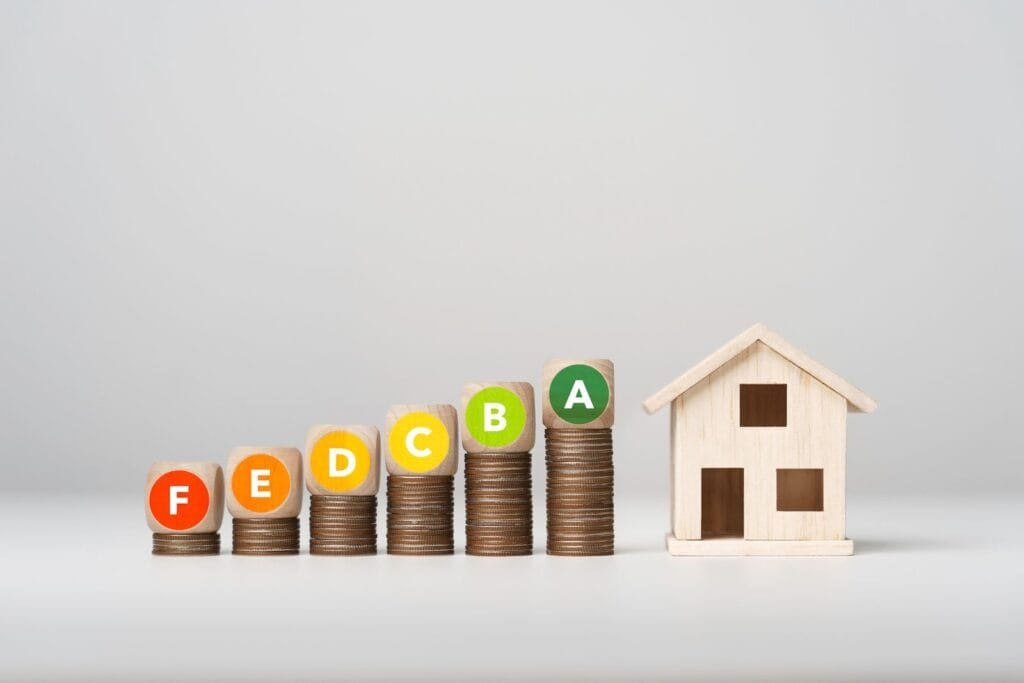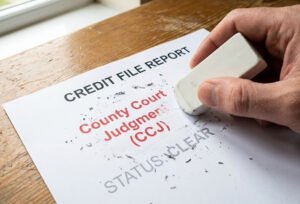What is an EPC rating?
An Energy Performance Certificate (EPC) measures a property’s overall energy efficiency – including how well it retains heat, how much energy it uses, and the likely cost of heating, lighting, and hot water. An EPC also provides recommendations for energy savings.
Investing time, effort, and funding in the recommended EPC improvements should save money, reduce your carbon footprint, and increase your property’s value by improving its EPC rating.
Several factors, including the construction, the insulation, and the window glazing, form the basis of your home’s EPC rating.
In the UK, you must have an EPC in place before marketing a property for sale or rent. The rating ranges from A to G, where an EPC rating of A is excellent, and a score of G means the property isn’t energy efficient at all.
How does the EPC rating affect the cost of energy?
Government data shows that around 60% of UK homes, roughly 18 million properties, have an EPC rating of D or below. That’s considered a poor rating, and it means that millions of households are paying more for energy than they need to.
Heating, hot water, and lighting are real energy gobblers, and it’s well worth taking action to improve your energy consumption. You could save hundreds of pounds on energy usage.
Average Energy Usage
According to Rightmove data, the average annual energy bill for a three-bedroomed terraced home can range from around £400 for an A-rated property to over £4,000 for an F-rated one, depending on current energy prices and household usage.
As you can see, the energy savings between EPC ratings of A and D are substantial. That’s a potential saving of nearly £2,000 a year based on typical energy use, though your actual savings will depend on your home’s size, energy use, and tariff.
Imagine what you could do with the money. You could save for a holiday, upgrade your home, or increase your debt payments to save on interest.
How to make your home more energy efficient
There are several steps you can take to improve your home’s EPC rating and save money on energy.
Switch to LED lightbulbs
Possibly one of the easiest changes to implement is switching to LED lightbulbs. LED lightbulbs use up to 75% less energy than incandescent lights, and they last 25 times longer. You can expect an LED lightbulb to burn for 60,000 hours.
If you’re not using LED lightbulbs, you’re throwing money away, it’s a relatively inexpensive, painless change.
Install loft and cavity wall insulation
Keeping heat inside your home is key to reducing your heating costs. Heat can escape through the walls, roof, and windows. Let’s deal with the roof and walls first.
The best way to prevent heat loss is to install loft insulation (usually mineral wool or fibreglass) and cavity wall insulation using mineral fibre or rigid foam boards. This should improve your EPC rating and help reduce heat loss, resulting in lower heating bills.
Fit double or triple glazing
If you still have single-glazed windows, you’re losing loads of heat through your windows. Double or triple glazing isn’t cheap, but it will pay dividends in energy savings and in general home comfort, winter and summer.
Insulate the hot water tank
Hot water is another big energy consumer. Fortunately, insulating your tank is relatively inexpensive. You can buy an insulating water tank jacket for under £40.
Upgrade the boiler
If you can afford to splash out a little more, swapping your boiler for a new, more efficient model can dramatically improve your EPC rating. To achieve the best results, consider upgrading to a modern condensing boiler, an air-source or ground-source heat pump, or a low-carbon heating system such as a hydrogen-ready or electric boiler.
Install a smart meter
A smart meter won’t directly affect your EPC rating, but it can help you track and manage your energy consumption. There’s nothing quite like understanding your usage in the battle to reduce consumption. Use the information you gather to make smart decisions, like lowering your thermostat as soon as you notice household energy use rising.






